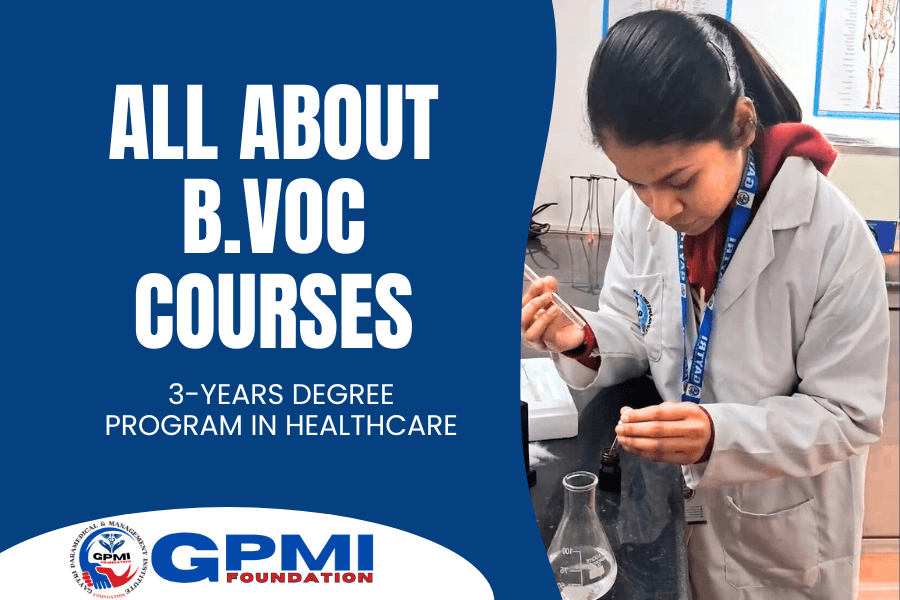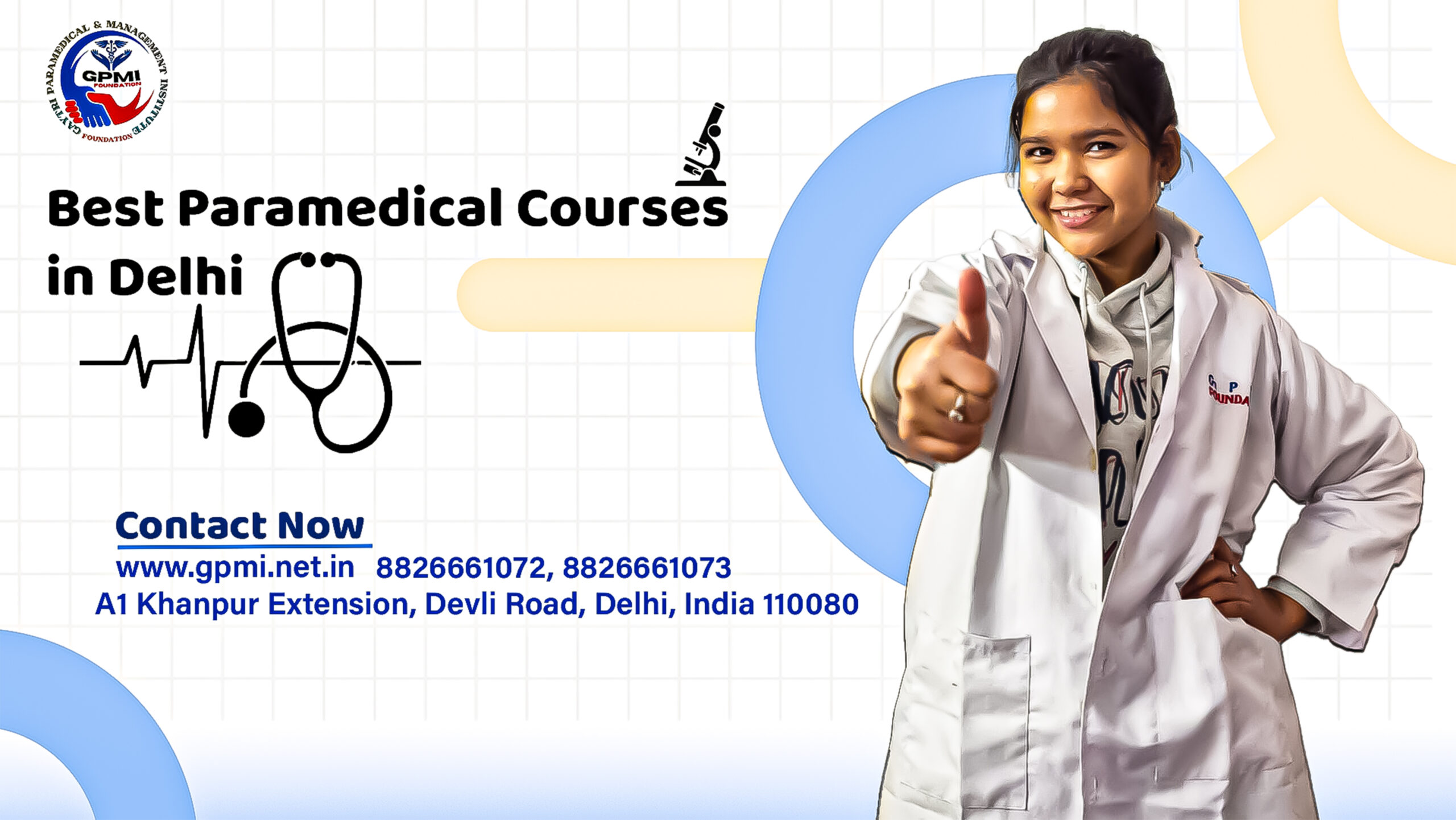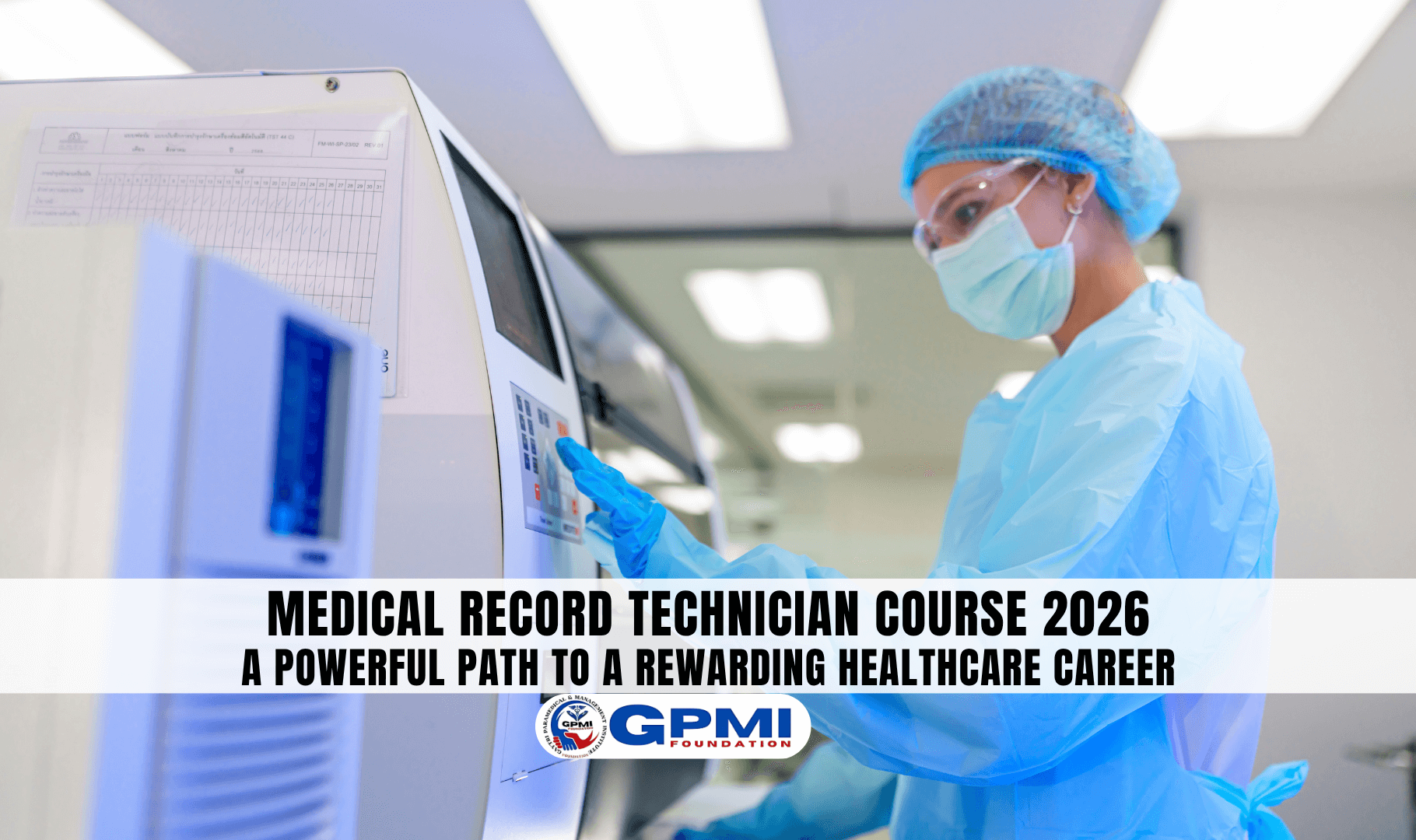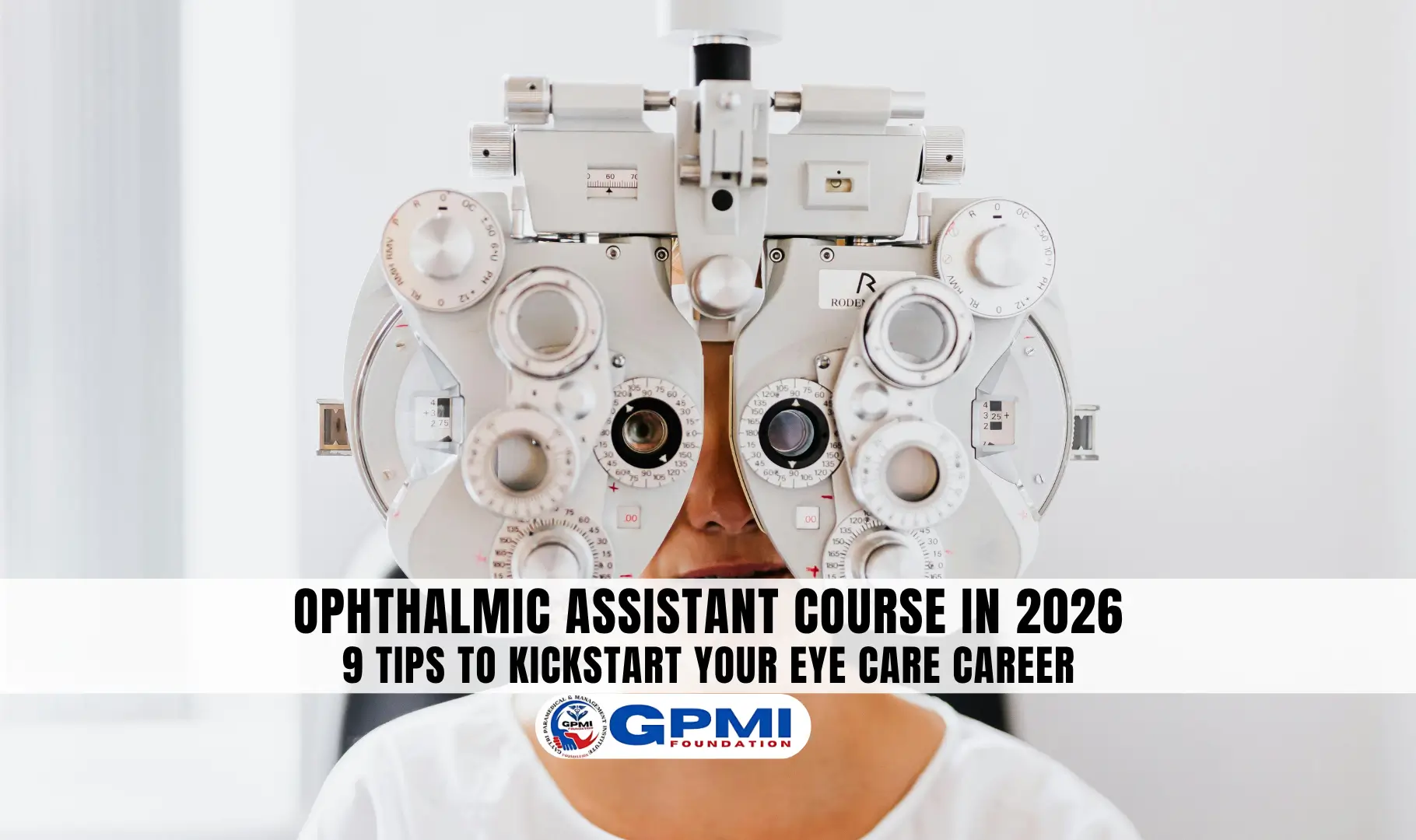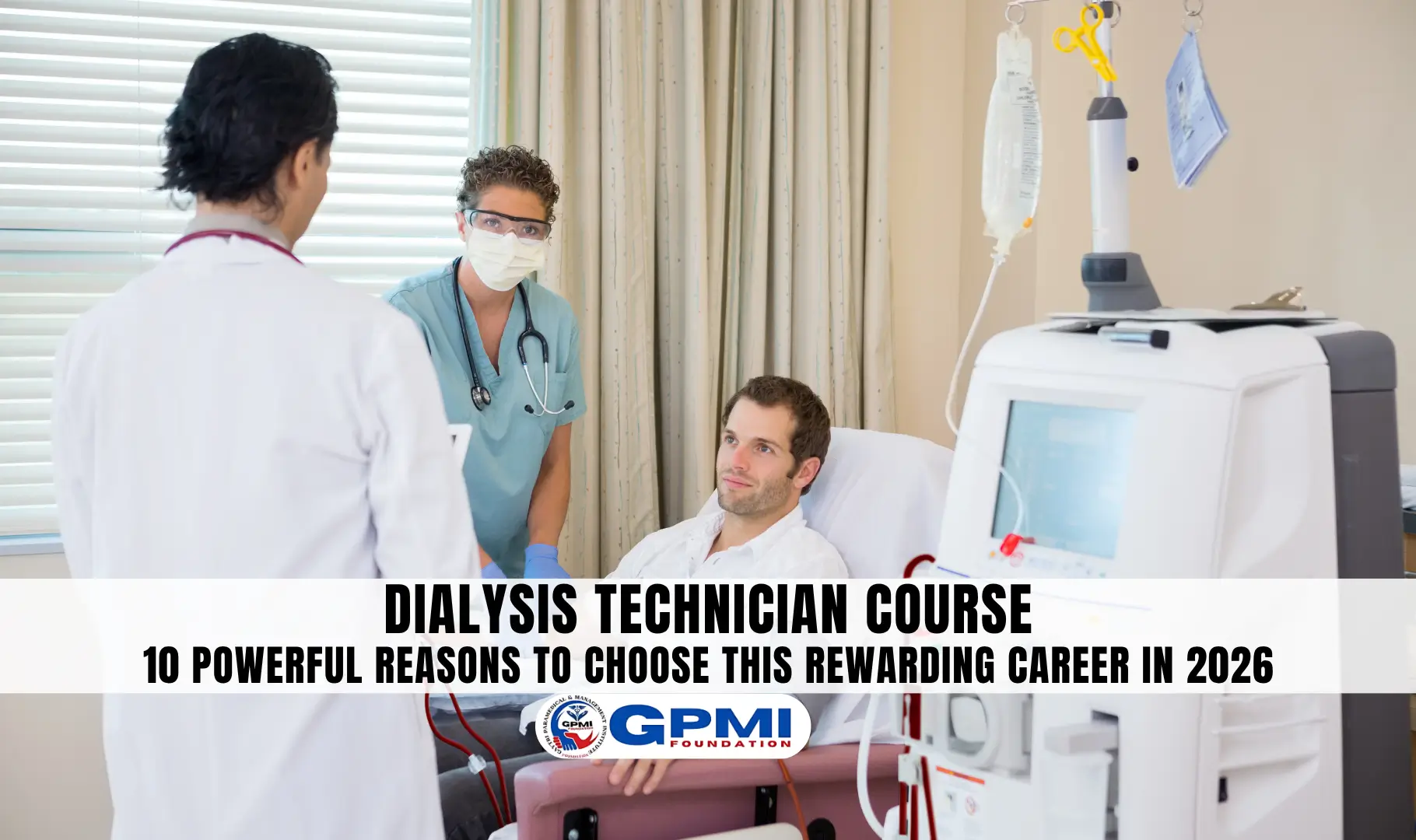B Voc Course in Paramedical Science Course after 12th offer a practical and career-focused path for students interested in the healthcare sector. These courses provide hands-on training in fields like Medical Lab Technology, Radiology, Optometry, and Operation Theatre Technology.
Unlike traditional degrees, Bachelor in Vocation programs focus on skill development, making students job-ready. The courses are structured with multiple exit options—A diploma after one year, Advanced Diploma after two years, and a Degree after three years.
With the growing demand for paramedical professionals in hospitals, labs, and clinics, B.Voc. Courses ensure better employment opportunities in the healthcare industry.
Table of Contents
What is B Voc Course?
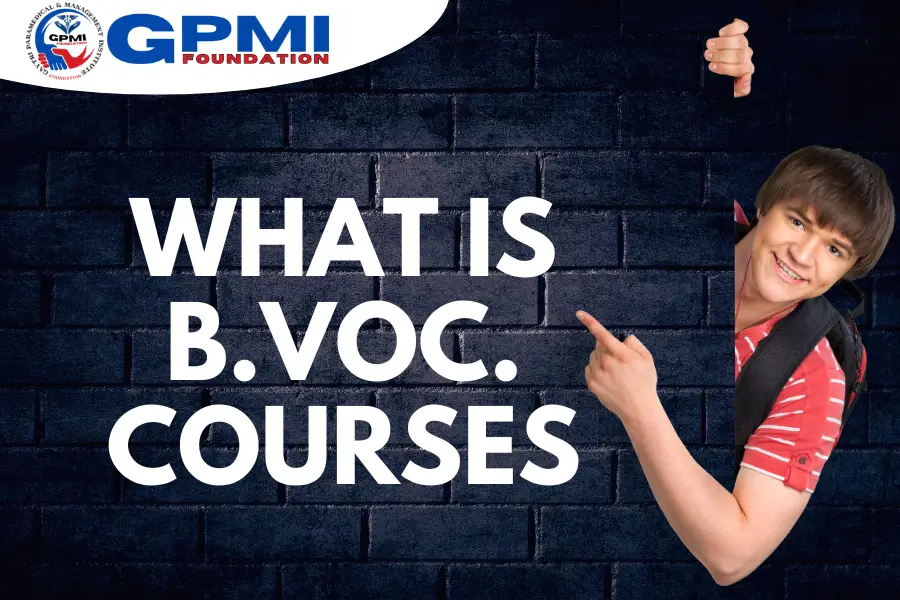
Bachelor of Vocation (B.Voc.) courses are skill-based undergraduate programs designed to provide practical training and industry-specific knowledge. Unlike traditional degrees, B.Voc. courses focus on hands-on learning, making students job-ready in fields like healthcare, technology, and business.
These programs follow a flexible structure, allowing students to exit with a Diploma after one year, an Advanced Diploma after two years, and a full Degree after three years.
In the paramedical sector, B.Voc. courses include Medical Lab Technology (MLT), Radiology, Optometry, and Operation Theatre Technology (OTT), etc. These courses help students build expertise and secure careers in hospitals, diagnostic labs, and research centers.
B Voc Course Details…
| B Voc Full Form | Bachelor in Vocation |
| B Voc course Level | Undergraduate |
| B Voc course Duration | 3 Years (6 Semesters) |
| B Voc course Eligibility | passed 12th grade (10+2) from any recognized board. any stream (Arts/Commerce/Science). |
| B Voc course Average Salary | Rs. 20k to 40k Per Month |
| First Time Launched by | lingayas university |
B Voc Course List 2025
Here is a complete list of B.Voc. courses available in 2025 across various industries:
1. Paramedical & Healthcare
- B.Voc. in Medical Lab Technology (MLT)
- B.Voc. in Radiology & Medical Imaging Technology
- B.Voc. in Optometry Technology
- B.Voc. in Operation Theatre Technology (OTT)
- B.Voc. in Dialysis Technology
- B.Voc. in Emergency Medical Technology
- B.Voc. in Physiotherapy
- B.Voc. in Medical Record Technology
- B.Voc. in Hospital Administration
2. Business & Management
- B.Voc. in Retail Management
- B.Voc. in Banking, Financial Services & Insurance (BFSI)
- B.Voc. in Supply Chain & Logistics Management
- B.Voc. in Digital Marketing & E-Commerce
- B.Voc. in Sales & Marketing
3. Information Technology & Computer Science
- B.Voc. in Software Development
- B.Voc. in Data Science & Artificial Intelligence
- B.Voc. in Cyber Security & Ethical Hacking
- B.Voc. in Cloud Computing
- B.Voc. in Graphic Design & Animation
4. Engineering & Technical Fields
- B.Voc. in Automobile Servicing
- B.Voc. in Industrial Safety & Fire Management
- B.Voc. in Construction Technology
- B.Voc. in Renewable Energy Management
- B.Voc. in Tool & Die Manufacturing
5. Hospitality & Tourism
- B.Voc. in Hotel Management & Catering
- B.Voc. in Travel & Tourism Management
- B.Voc. in Culinary Arts & Food Production
6. Media & Entertainment
- B.Voc. in Journalism & Mass Communication
- B.Voc. in Photography & Videography
- B.Voc. in Film Making & Direction
- B.Voc. in Acting & Theatre Arts
7. Agriculture & Food Science
- B.Voc. in Agriculture Technology
- B.Voc. in Dairy Technology
- B.Voc. in Food Processing & Quality Management
8. Fashion & Design
- B.Voc. in Fashion Designing & Apparel Technology
- B.Voc. in Interior Design & Decoration
- B.Voc. in Jewelry Design & Manufacturing
9. Education & Training
- B.Voc. in Early Childhood Education
- B.Voc. in Special Education & Disability Studies
B.Voc. courses provide skill-based training with multiple exit options (Diploma after 1 year, Advanced Diploma after 2 years, and Degree after 3 years), making them an ideal choice for job-oriented education.
5 Best B.Voc Courses in Paramedical Science
B.Voc. (Bachelor of Vocation) in Paramedical Science is a 3-year undergraduate degree program focusing on skill development in medical support services. Unlike traditional degrees, B.Voc. courses emphasize practical training and industry exposure, making students job-ready from day one.
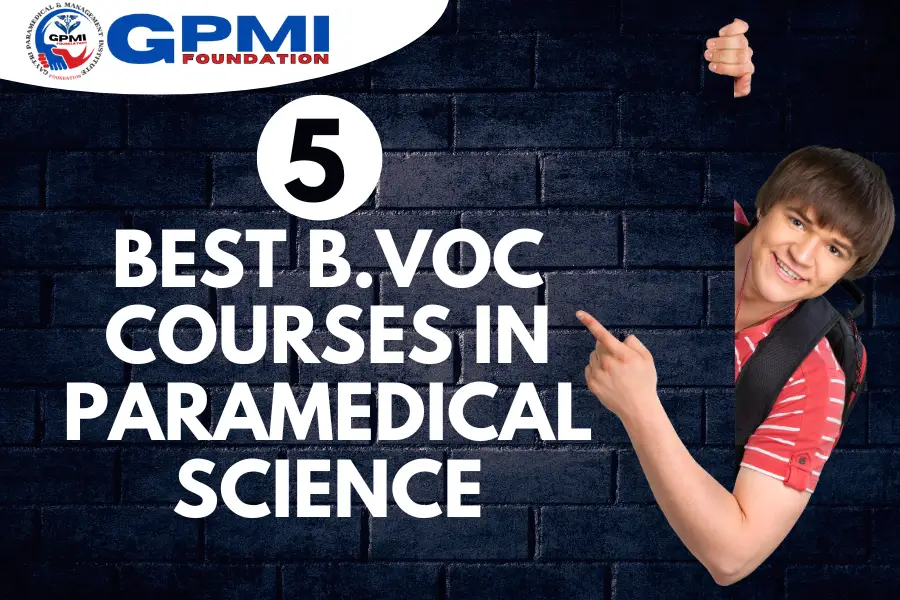
A key advantage of B.Voc. courses is their multiple exit options:
- Diploma after completing 1 year
- Advanced Diploma after 2 years
- Full Bachelor’s Degree after 3 years
This structure provides flexibility, allowing students to enter the workforce at different stages based on their career goals. Here are some well-known courses in the paramedical sector to explore…
1. Bachelor of Vocation in Medical Lab Technology (MLT)
B.Voc. in Medical Lab Technology (MLT) is a three-year undergraduate program that trains students in laboratory techniques used for medical diagnosis.
This course is designed to develop skilled professionals who can perform various diagnostic tests, analyze biological samples, and assist doctors in disease detection and treatment planning.
- Focuses on laboratory tests and diagnostics
- Covers subjects like Haematology, Microbiology, Biochemistry, and Pathology
- Job roles: Lab Technician, Pathology Assistant, Blood Bank Technician
B.Voc.MLT – Course Objectives
Develop Core Laboratory Skills
- Train students in handling and operating medical laboratory equipment.
- Teach essential techniques in sample collection, analysis, and interpretation.
Ensure Theoretical and Practical Knowledge
- Provide a strong foundation in Human Anatomy, Physiology, Biochemistry, Microbiology, and Pathology.
- Focus on practical training in hematology, histopathology, and clinical chemistry.
Enhance Diagnostic Expertise
- Equip students with skills to conduct medical tests accurately for disease diagnosis.
- Teach the importance of quality control and laboratory safety protocols.
Promote Professional and Ethical Standards
- Instill professionalism, ethics, and confidentiality in medical laboratory practice.
- Encourage teamwork and effective communication in healthcare settings.
Prepare for Diverse Career Opportunities
- Train students for careers in hospitals, diagnostic labs, blood banks, and research centers.
- Provide knowledge of emerging technologies in medical diagnostics.
Encourage Lifelong Learning and Growth
- Develop problem-solving and critical-thinking skills for clinical scenarios.
- Prepare students for higher studies, certifications, and research in laboratory sciences.
Career Options After Course
A B.Voc. in Medical Lab Technology (MLT) opens up multiple career paths in the healthcare and diagnostic sectors. Graduates can work in hospitals, pathology labs, blood banks, research institutes, and pharmaceutical companies. Below are some of the top career options:
Medical Laboratory Technician (MLT)
- Perform laboratory tests on blood, urine, and tissue samples.
- Work in hospitals, diagnostic labs, and private clinics.
Pathology Lab Technician
- Assist pathologists in diagnosing diseases through lab tests.
- Specialize in hematology, microbiology, and histopathology.
Blood Bank Technician
- Collect, test, and store blood for transfusions.
- Ensure safe blood donation and compatibility testing.
Clinical Research Associate (CRA)
- Conduct clinical trials for new drugs and treatments.
- Work in pharmaceutical companies, research labs, and medical institutes.
Histotechnologist (Histology Technician)
- Prepare tissue samples for microscopic examination.
- Work in cancer research, forensic labs, and hospitals.
Medical Laboratory Supervisor/Manager
- Oversee lab operations, staff, and quality control.
- Work in hospitals, corporate diagnostic centers, and research labs.
Infection Control Technician
- Monitor and control the spread of infections in hospitals.
- Assist in sterilization and hygiene management.
Government & Private Sector Opportunities
- Hospitals & Clinics – AIIMS, Apollo, Fortis, Max Healthcare
- Blood Banks & Diagnostic Labs – SRL Diagnostics, Dr. Lal PathLabs, Thyrocare
- Pharmaceutical & Research Companies – Biocon, Sun Pharma, Ranbaxy
- Forensic & Crime Investigation Labs – Government and private forensic labs
- Teaching & Academic Roles – Become an instructor or trainer in paramedical colleges
Further Studies & Specialization Options
- M.Voc. in Medical Lab Technology – Higher education in lab sciences
- PG Diploma in Medical Lab Technology (PGDMLT) – Advanced specialization
- MBA in Healthcare & Hospital Management – Leadership roles in healthcare
A B.Voc. in MLT offers high employability, career growth, and diverse job roles in the healthcare sector. With practical skills and industry training, graduates can secure stable and well-paying jobs in medical laboratories, research centers, and hospitals.
2. Bachelor of Vocation in Radiology & Medical Imaging Technology
B.Voc. in Radiology & Medical Imaging Technology is a three-year undergraduate degree designed to train students in medical imaging techniques such as X-ray, MRI, CT scan, and ultrasound.
This course equips students with the technical skills needed to assist doctors in diagnosing and treating diseases using advanced imaging equipment.
- Trains students in X-ray, CT Scan, MRI, and Ultrasound
- Includes hands-on training in advanced imaging techniques
- Job roles: Radiology Technician, MRI Technologist, X-ray Technician
B.Voc.RMIT – Course Objectives
Develop Technical Expertise in Medical Imaging
- Train students in the operation and handling of X-ray, CT scan, MRI, and ultrasound machines.
- Provide in-depth knowledge of radiation physics, safety protocols, and imaging techniques.
Enhance Diagnostic Skills for Disease Detection
- Teach students to accurately perform radiographic imaging and contrast studies.
- Develop proficiency in analyzing medical images for diagnosis and treatment planning.
Ensure Knowledge of Radiation Protection & Safety
- Educate students on radiation hazards, safety measures, and regulatory guidelines.
- Train them in minimizing patient and technician exposure to radiation.
Strengthen Patient Care & Communication
- Emphasize the importance of patient handling, positioning, and comfort during imaging procedures.
- Develop communication skills for explaining procedures and obtaining patient cooperation.
Prepare for Industry-Ready Employment
- Provide hands-on training through internships and hospital-based practical sessions.
- Equip students for roles in hospitals, diagnostic labs, and research centers.
Encourage Research & Technological Advancement
- Introduce students to emerging trends in radiology, such as AI in imaging and interventional radiology.
- Foster critical thinking and problem-solving skills for medical research and innovation.
Promote Ethical & Professional Standards
- Teach ethical guidelines and legal responsibilities in medical imaging practice.
- Encourage adherence to professional standards and patient confidentiality protocols.
A B.Voc. in Radiology & Medical Imaging Technology (RMIT) opens up multiple job opportunities in hospitals, diagnostic centers, research labs, and healthcare institutions. Graduates can work in medical imaging, radiology departments, and advanced diagnostic procedures.
Career Options After Course
Radiology Technician
- Operate X-ray, MRI, and CT scan machines to capture diagnostic images.
- Assist radiologists in analyzing images for accurate diagnosis.
- Work in hospitals, imaging labs, and diagnostic centers.
MRI/CT Scan Technologist
- Specialize in Magnetic Resonance Imaging (MRI) and Computed Tomography (CT scans).
- Work with advanced imaging equipment for detailed internal body scans.
- Employed in multi-specialty hospitals and private imaging centers.
X-ray Technician
- Perform X-ray imaging procedures and ensure radiation safety.
- Assist doctors in detecting fractures, infections, and abnormalities.
- Jobs available in hospitals, orthopedic clinics, and trauma centers.
Ultrasound & Sonography Technician
- Conduct ultrasound scans and Doppler imaging for pregnancy, organ assessment, and blood flow analysis.
- Work closely with gynecologists, cardiologists, and radiologists.
- Found in maternity hospitals, cardiology centers, and diagnostic labs.
Interventional Radiology Technologist
- Assist in image-guided surgeries and minimally invasive treatments.
- Work with angiography, fluoroscopy, and catheter-based procedures.
- Employed in cardiology units, cancer hospitals, and surgical centers.
Radiation Safety Officer (RSO)
- Ensure safe handling of radiation equipment and monitor exposure levels.
- Implement safety measures in hospitals, research labs, and nuclear medicine centers.
- Requires certification and government approval in some regions.
Radiology Lab Supervisor/Manager
- Oversee radiology departments, staff management, and equipment maintenance.
- Ensure quality control and compliance with medical imaging standards.
- Found in hospitals, diagnostic labs, and healthcare institutions.
Research & Development Associate in Medical Imaging
- Work on new imaging technologies and innovations in radiology.
- Conduct studies to improve imaging accuracy and patient safety.
- Careers in biomedical research institutes and healthcare technology companies.
3. Bachelor of Vocation in Optometry Technology
The B.Voc. in Optometry Technology program is designed to equip students with the knowledge and skills required for professional eye care services. The course focuses on developing practical expertise in vision assessment, optical corrections, and eye health management.
- Deals with eye care, vision testing, and optical instruments
- Covers contact lens fitting, ocular diseases, and refraction techniques
- Job roles: Optometrist, Vision Technician, Optical Consultant
B.Voc.OT – Course Objectives
Fundamental Knowledge of Optometry
- Teach students the anatomy, physiology, and functions of the human eye.
- Provide a strong foundation in optical physics and visual optics.
Vision Testing & Diagnosis
- Train students in eye examinations, refraction techniques, and visual acuity assessments.
- Develop skills to detect common eye conditions like myopia, hyperopia, astigmatism, and presbyopia.
Optical Aids & Prescriptions
- Educate students on the selection and fitting of spectacles, contact lenses, and other optical aids.
- Teach proper techniques for prescribing corrective eyewear.
Detection & Management of Eye Disorders
- Equip students with the ability to identify early signs of eye diseases such as cataracts, glaucoma, and diabetic retinopathy.
- Train them in pre and post-operative care for eye surgeries.
Hands-on Training with Optometric Instruments
- Provide practical exposure to instruments like retinoscopes, keratometers, and autorefractors.
- Develop skills in using advanced optical and diagnostic tools.
Patient Care & Communication
- Train students in counseling patients about eye care and the importance of regular eye check-ups.
- Enhance communication skills to interact effectively with patients and healthcare professionals.
Industry Exposure & Professional Development
- Offer internship opportunities in hospitals, eye clinics, and optical centers.
- Prepare students for careers in optometry clinics, eyewear companies, and vision research.
This program ensures that graduates are industry-ready and capable of delivering quality eye care services in both clinical and retail optometry settings.
Career Options After Course
Optometrist & Vision Consultant
- Conducts eye examinations and vision tests.
- Prescribes spectacles and contact lenses.
- Provides solutions for patients with partial vision loss.
- Works in vision rehabilitation centers and specialty clinics.
- Works in eye hospitals, corporate healthcare centers, and optical companies.
Contact Lens Specialist
- Helps patients choose and fit contact lenses.
- Works in optical clinics and eyewear retail chains.
Optical Sales & Marketing Executive
- Promotes eyewear brands and optical products.
- Works with optical stores, lens manufacturers, and multinational eyewear companies.
Optical Laboratory Technician
- Designs and fabricates lenses for spectacles.
- Works in optical manufacturing and repair labs.
Research Assistant in Vision Science
- Works in vision science labs, helping develop advanced eye care technologies.
- Collaborates with universities and healthcare research institutions.
4. Bachelor of Vocation in Operation Theatre Technology (OTT)
The B.Voc. in Operation Theatre Technology (OTT) program is designed to train students in surgical procedures, sterilization techniques, and patient care. The course aims to develop skilled professionals who can efficiently assist surgeons, anesthetists, and nurses in operation theatres.
- Prepares students for assisting in surgeries and maintaining OT equipment
- Includes sterilization techniques, surgical instruments, and anesthesia procedures
- Job roles: Operation Theatre Technician, Surgical Assistant, OT Manager
B.Voc.OTT – Course Objectives
Understanding Human Anatomy & Surgical Procedures
- Provide in-depth knowledge of human anatomy and physiology.
- Familiarize students with different types of surgeries and their procedures.
Operation Theatre Management
- Train students in setting up and managing operation theatres.
- Teach proper handling and maintenance of surgical instruments.
Sterilization & Infection Control
- Educate students on sterilization techniques to maintain a germ-free environment.
- Ensure knowledge of infection control protocols in surgical settings.
Surgical Assistance & Patient Care
- Equip students with the skills to assist surgeons before, during, and after surgery.
- Teach patient positioning, monitoring, and post-operative care.
Anesthesia & Emergency Support
- Provide knowledge about anesthesia types, dosages, and monitoring.
- Train students to assist anesthetists in preparing and managing anesthesia equipment.
Medical Ethics & Professionalism
- Develop ethical and professional behavior in handling patients and working in hospitals.
- Teach communication skills to interact with healthcare teams effectively.
Hands-on Training & Industry Exposure
- Offer practical training in hospitals and surgical centers.
- Prepare students for real-world challenges in operation theatre settings.
This program ensures graduates are well-trained for careers in surgical assistance, emergency care, and operation theatre management.
Career Options After Course
Graduates of in Operation Theatre Technology (OTT) have excellent career opportunities in hospitals, surgical centers, and emergency care units. They play a crucial role in ensuring smooth and sterile operation theatre procedures.
Operation Theatre Technician
- Prepares the operation theatre before surgery.
- Assists surgeons and nurses during surgical procedures.
- Ensures proper sterilization of surgical instruments.
Surgical Assistant
- Helps doctors by handling surgical instruments.
- Assists in dressing wounds and monitoring patients during surgery.
Anesthesia Technician
- Prepares and maintains anesthesia equipment.
- Assists anesthetists in administering anesthesia to patients.
OT In-Charge/Supervisor
- Manages operation theatre schedules and equipment.
- Supervises OT staff and ensures infection control protocols.
Emergency & Trauma Care Assistant
- Works in emergency rooms and trauma centers.
- Assists in handling critical patients and emergency surgeries.
Sterilization Technician
- Ensures all surgical tools and equipment are properly disinfected.
- Works in hospitals, clinics, and sterilization units.
Medical Equipment Specialist
- Manages and maintains surgical instruments and machines.
- Works in hospitals, medical equipment companies, and OT supply chains.
With growing demand for skilled OT professionals, this course provides job security and career growth in the healthcare sector.
5. Bachelor of Vocation in Dialysis Technology
B.Voc. in Dialysis Technology is a three-year undergraduate program designed to train students in handling dialysis procedures for patients suffering from kidney failure.
The course equips students with the technical skills required to operate dialysis machines, monitor patients, and manage pre- and post-dialysis care.
- Focuses on kidney dialysis procedures and machine handling
- Covers patient care, vascular access techniques, and dialysis fluids
- Job roles: Dialysis Technician, Renal Care Assistant, Nephrology Technician
Dialysis Technology – Course Objectives
Understanding Human Anatomy & Kidney Functions
- Teach the structure and functions of the human kidney.
- Provide knowledge of renal diseases and their management.
Mastering Dialysis Techniques
- Train students in Hemodialysis and Peritoneal Dialysis procedures.
- Teach blood filtration techniques and fluid balance management.
Handling & Maintenance of Dialysis Machines
- Educate students on operating, troubleshooting, and maintaining dialysis machines.
- Ensure safe and efficient use of dialysis equipment.
Patient Care & Monitoring
- Train students in preparing patients for dialysis procedures.
- Monitor vital signs, detect complications, and manage emergencies.
Infection Control & Sterilization
- Develop skills in maintaining hygiene and sterilization of dialysis units.
- Educate on infection prevention practices in dialysis centers.
Medical Ethics & Communication Skills
- Teach ethical guidelines and patient confidentiality in renal care.
- Enhance communication skills for effective patient interaction.
Hands-on Training & Industry Exposure
- Provide real-world training in hospitals and dialysis centers.
- Equip students with industry-relevant skills to ensure employability.
This program prepares students for a successful career in dialysis technology, ensuring high-quality patient care in the growing field of renal healthcare.
Career Opportunities Ater Course
Dialysis Technician
- Operates and maintains dialysis machines.
- Monitors patients before, during, and after dialysis.
- Works in hospitals, kidney care centers, and dialysis clinics.
Renal Dialysis Technician
- Assists nephrologists in patient treatment.
- Manages dialysis schedules and patient care plans.
Hemodialysis Technician
- Specializes in blood filtration dialysis techniques.
- Ensures the correct setup and functioning of dialysis machines.
Peritoneal Dialysis Technician
- Trains patients for at-home peritoneal dialysis.
- Educates on fluid management and infection control.
Dialysis Machine Operator
- Maintains, troubleshoots, and calibrates dialysis machines.
- Works with hospitals, clinics, and medical equipment suppliers.
Medical Assistant in Nephrology Units
- Supports kidney specialists in patient diagnosis and care.
- Assists in managing chronic kidney disease (CKD) patients.
Healthcare Trainer
- Trains aspiring dialysis technicians and healthcare workers.
- Works in medical colleges and vocational training institutes.
Entrepreneurial Opportunities:
- Open a dialysis care center.
- Start a dialysis machine maintenance service.
- Work as a freelance dialysis consultant for hospitals and clinics.
This course offers job security and career growth in the expanding field of renal healthcare, ensuring a steady demand for skilled professionals.
Career Opportunities After B.Voc. Paramedical Courses
Graduates of B.Voc. paramedical courses can find employment in:
✔ Hospitals & Clinics
✔ Pathology Labs & Diagnostic Centers
✔ Blood Banks & Organ Transplant Units
✔ Medical Research & Pharmaceutical Companies
✔ Eye Hospitals & Optical Chains
✔ Emergency & Ambulance Services
Additionally, students can pursue higher studies (M.Voc., MBA in Healthcare, or PG Diploma courses) to advance in their careers.
Why Choose a B.Voc. Course in Paramedical Science?
- Skill-Based Learning: More practical exposure compared to traditional degrees
- High Demand: Growing need for paramedics in the healthcare sector
- Job-Oriented: Immediate employment opportunities after course completion
- Flexibility: Multiple exit options (Diploma, Advanced Diploma, or Degree)
- Affordable Fees: Lower cost compared to MBBS and other medical degrees
B Voc Course Scopes
B.Voc. courses offer excellent career prospects in healthcare, IT, business, and government sectors. Graduates can secure jobs as lab technicians, optometrists, OT technicians, dialysis experts, and emergency medical professionals in hospitals and diagnostic centers.
The courses also provide opportunities in digital marketing, software development, and entrepreneurship. Government jobs in health departments, railways, and defense services are also an option.
Higher studies like M.Voc., postgraduate diplomas, or MBA in healthcare management can boost career growth. With industry demand for skilled professionals rising, B.Voc. graduates have stable and rewarding career opportunities in both private and public sectors.
READ MORE:-
Conclusion
B.Voc. courses provide a strong career foundation by combining theoretical knowledge with practical skills, ensuring high employability in various industries.
Whether in healthcare, IT, business, or government sectors, these courses open doors to secure and rewarding job opportunities. Graduates can work in hospitals, diagnostic centers, research labs, and corporate sectors, or even start their own businesses.
With the flexibility of higher education options like M.Voc. and MBA, students can further enhance their career prospects. As the demand for skilled professionals continues to grow, B.Voc. remains one of the best career choices for future success.


